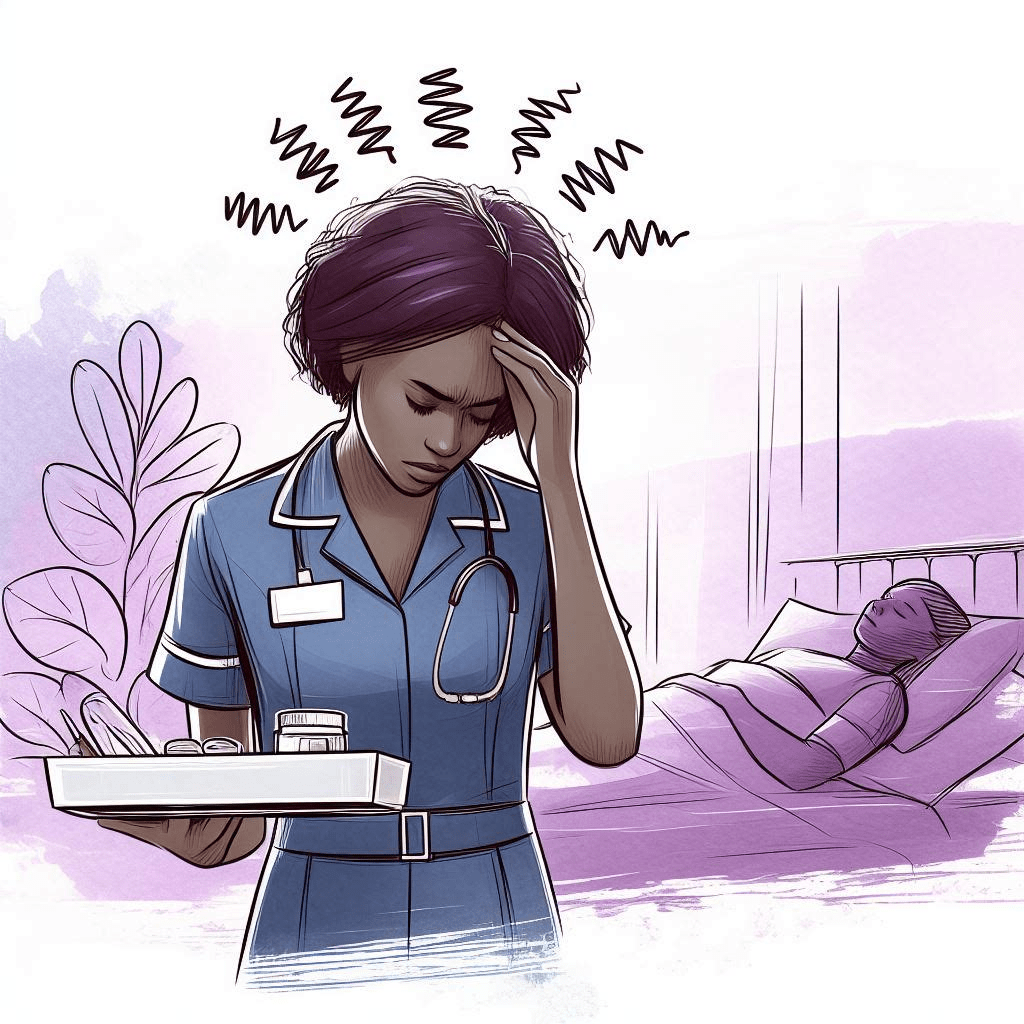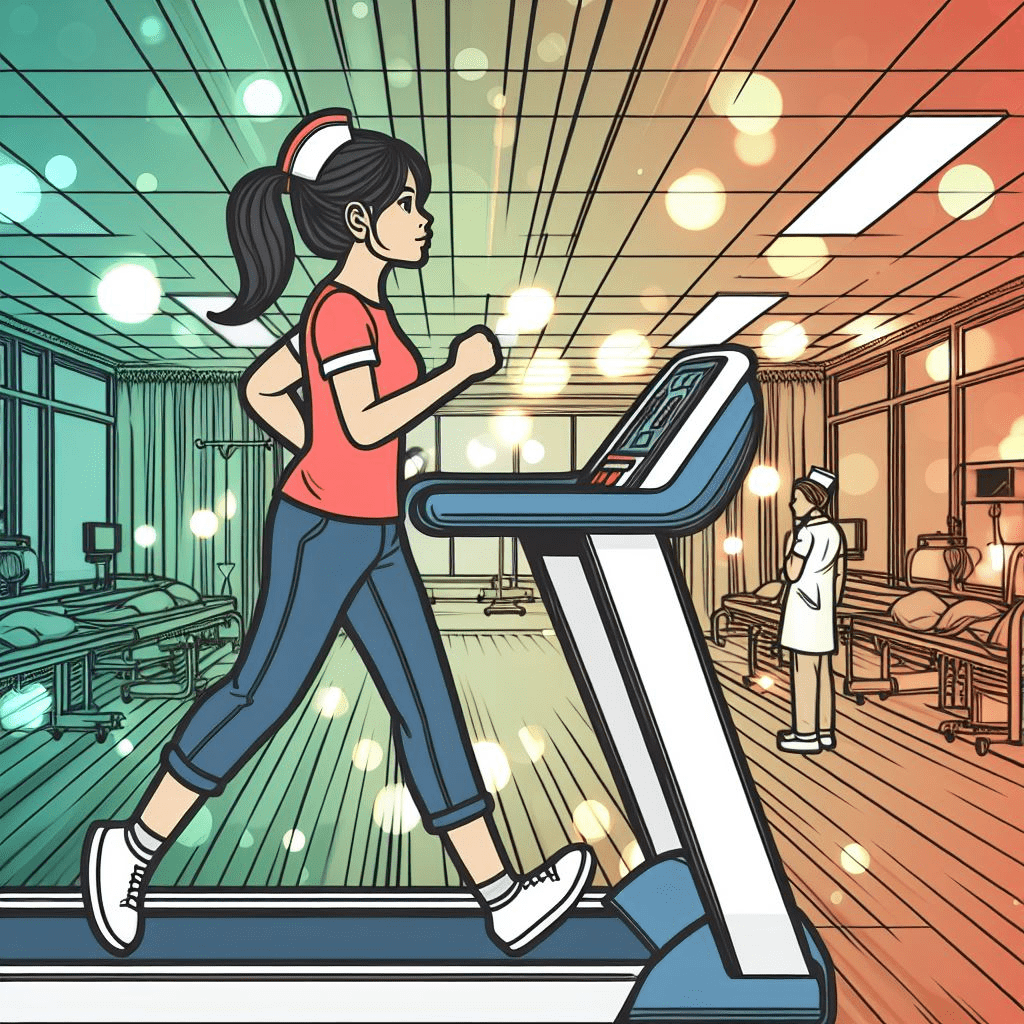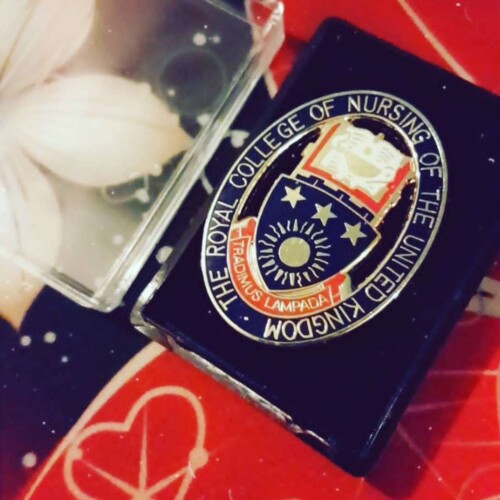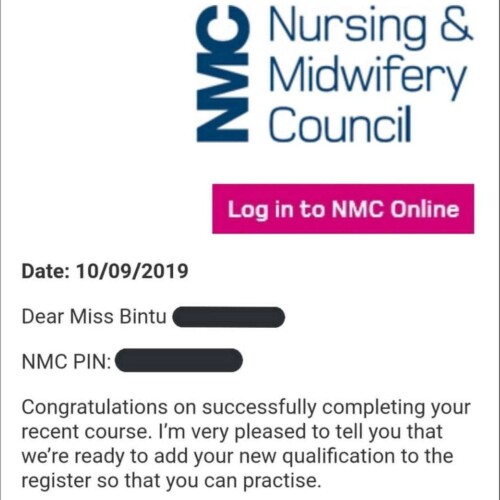How to Stay Fit and Healthy as a Registered Nurse
–
Let’s start by acknowledging that staying fit and healthy as a registered nurse is hard.
However, although it can be challenging, without a doubt it is not impossible.
We constantly advise our patients, our colleagues and our family and friends on how to better their health, but how much do we follow our own advice?
And of course, you always want to put your patients and others first, which is admirable. But you also need to look after your own health and happiness, because your wellbeing also matters.
So, how can you stay fit and healthy as a registered nurse?
If you’re looking for a quick miracle solution, then apologies because the truth is that you won’t find that anywhere.
However, what can be provided is information that takes into consideration the difficulties that come with working as a nurse, when trying to maintain a lifestyle that will keep you energised and ready to take on each new day.
Eat a Balanced Diet
Have you ever gotten home from a long, strenuous shift feeling hungry but too tired to cook? You look in your fridge, and then your freezer but there is nothing to eat. Horror.
At that point you have two options: Power through and go to bed hungry OR open that very convenient food app and order something that wouldn’t exactly be considered healthy.
As something that doesn’t happen to often, this isn’t too much of an issue. But when it becomes the norm then we know it’s time to make some urgent changes.
✾ Eating a balanced diet can help you keep your energy levels up, boost your immune system, prevent diseases and improve your overall mood.
✾ It can also help you avoid overeating or binge eating, which can make you gain weight and cause other health problems.
How to Eat a Balanced Diet:
Pick lean proteins and whole grains
Lean proteins, like chicken, fish, eggs, and beans, can help you build and repair your muscles and tissues.
Whole grains, like oats, brown rice and quinoa, can give you complex carbs that can keep you going throughout the day. They’re also good for your heart and brain.
Eat more fruits and veg
“An apple a day keeps the doctor away.”
Well, hopefully not for too long, we have lives to save!
Fruits and veg are packed with antioxidants, fibre and water, which can help you feel full and hydrated.
They also have vitamins and minerals that can protect you from infections and diseases.
Cut down on saturated fats and sugars
Saturated fats, like butter, cheese and red meat, can raise your cholesterol levels and increase your risk of heart disease.
Sugars, like candy, soda and pastries, can spike your blood sugar levels and cause cravings and mood swings.
They may taste good, but they’re not good for you. Trust me, your body will thank you later.
Plan your meals ahead of time
Meal prep is a game changer.
Preparing your meal in advance lets you choose fresh and nutritious ingredients, portion them wisely and avoid junk food temptations.
You can relax and not waste extra time overanalysing what you want to eat.
Meal prep undeniably takes away the stress and hassle of deciding what to eat every day.
Make your meals healthy, not tasteless
Does eating healthy mean chewing on a piece of unseasoned broccoli as a meal or bowls of plain salad for the rest of your life?
Certainly not.
Your meals can be full of luscious flavours and still be healthy.
So, don’t hold out on adding spices such as rosemary, cayenne pepper and cumin.
Just don’t overdo it, because too much of a good thing can still be bad for you.
Either way don’t make yourself suffer.
Because if you aren’t enjoying your food, it’s only a matter of time before you turn back to foods that WILL momentarily make you happy, healthy or not.
Don’t sacrifice your cultural foods, just make them healthier
Nurses come from many different backgrounds and cultures.
But when it comes to cultural foods it can be harder to determine the nutritional value, which leads to conventional foods being the default choice whilst trying to be healthy.
Rather than giving up on your favourite foods, a better long-term solution would be to adapt the recipes and at least have an estimate of its nutritional value.

Exercise Regularly
It’s no secret that exercise is good for you.
And as much as we want to count the numerous hours that we already spend on our feet during shifts as our ‘exercise for the day’, the unfortunate truth is that it’s simply not enough.
✾ Exercising regularly can help you burn calories, strengthen your muscles and bones, improve your heart health and reduce stress.
✾ It can also help you prevent or manage common health issues that affect nurses, like back pain, obesity and depression.
How to Exercise Regularly:
Know What You Want – Set realistic and specific goals
If you have ever been to a gym, you may have noticed the people that tend to half-heartedly complete a few reps on a machine or piece of equipment, and then move on aimlessly to the next one that catches their eye.
These people are called ‘Wanderers’.
Wanderers usually have a vague idea of what they want, but without guidance and a clear goal the end result is usually a loss of motivation.
So, set some goals. But don’t just set any random goals.
Make them SMART (Specific, Measurable, Achievable, Realistic, Time-Bound).
So, instead of saying “I want to lose weight”, say:
“I will do a 30-minute HIIT (high-intensity interval training) workout at the gym or at home, three times a week for the next twelve weeks, to improve my cardiovascular fitness, burn calories and lose at least five kilograms.”
Whatever you set as your goal, just don’t compare yourself to others, because everyone is different.
Know Yourself – Find an exercise routine that fits your schedule and preferences
There is no point in convincing yourself that you will go to the gym straight after every shift, when you know that you will be making a beeline straight home instead.
This ties in with setting a SMART goal that is realistic.
Be honest with yourself and think about what workout routine you can keep up with, so you can stay fit and healthy.
Make exercise fun and enjoyable
Exercising doesn’t have to be dull or tedious.
You can make exercise fun and enjoyable by picking activities that you like and won’t bore you back into an unhealthy lifestyle.
This could mean joining a dance class, playing a sport or exercising with a friend (but make sure they are as motivated as you).
You could even consider spicing things up with some music, games or challenges?
For example, games like Just Dance weren’t made to be played sitting down.
Go ahead, be creative!

It doesn’t make sense for a sick person to look after another sick person, so look after your health for your sake and for your patients.
Get a Good Night's Rest
Yeah, don’t worry, nurses everywhere around the world are laughing at this point too.
For the majority of registered nurses, having a normal sleep schedule is not in our vocabulary.
In between an unpredictable mixture of day shifts, night shifts and sometimes even late shifts, you might find it unfathomable to create a consistent sleep plan that works for you.
But even though it may not seem like it, getting a good night’s rest is far from impossible.
✾ Sleep can help you recharge your energy, repair your body, store your memory, and balance your hormones.
✾ Sleep can also help you cope with stress, improve your mood, boost your creativity, and strengthen your immune system.
How to Get a Good Night's Rest:
Try to keep a consistent sleep schedule as much as possible, even on your days off
This can help your body adjust to your irregular shifts and maintain a healthy circadian rhythm.
Avoid caffeine, alcohol, nicotine, and other stimulants or depressants before bedtime
These substances can interfere with your sleep quality and make it harder to fall asleep or stay asleep.
Create a comfortable and dark sleeping environment
Use curtains, blinds, or an eye mask to block out any daylight or artificial light. Use earplugs or a fan to mask any noise.
(If these don’t work for you, do the opposite and try a galaxy light projector or a white noise machine).
Set your room temperature to a comfortable level and use cosy bedding and pillows.
Follow a relaxing bedtime routine
Do some gentle stretches, read a book, listen to soothing music, meditate or practice breathing exercises before bed.
And it might be hard, but avoid using your phone, computer, TV or other devices that emit blue light and stimulate your brain.
(If you know that some of these activities usually help you sleep instead, like watching a specific type of video, then continue but be cautious of how long you are spending on it. It’s easy to lose track of time, so don’t let it affect your sleep).

Handle Stress the Right Way
Stress is unavoidable for registered nurses.
(As much as you want to believe that you don’t really get stressed.)
Some of the unavoidable perks of being a nurse is having to deal with demanding patients, difficult colleagues, heavy workloads and emotional situations.
You would have to be a robot not to get stressed sometimes.
Being stressed is not a weakness, so don’t let denial stop you from handling stress the right way.
✾ Stress affects your physical and mental health, causing headaches, anxiety, fatigue and insomnia.
✾ It can affect your overall health as a registered nurse, and your performance as a registered nurse.
How to Handle Stress the Right Way
Identify the sources of your stress
Figure out the different causes of your stress, and uncover which one stresses you out the most.
(You can try to make a list from most to least stressful to help you visualise and prioritise).
Avoid or reduce the sources of your stress
You can do this by setting boundaries, saying no, delegating tasks, or changing your perspective.
This won’t change things overnight, but as long as you start – even if it’s just the little things – you’ll be able to get your peace back, one step at a time.
Manage your emotions
Express your feelings (in a healthy way), seek support, practice gratitude and use positive affirmations.
Because sometimes all you need is somewhere or someone to rant to, and get things off your chest.
Relax your body and mind
Try deep breathing exercises, progressive muscle relaxation, guided imagery or aromatherapy.
We have access to such a wide range of resources, such as ‘Mind’. It would be a shame not to use them.
And I know that some people see meditation and think that it’s nonsensical mumbo jumbo, but between a lifetime of stress or just trying something new, I know which one I would choose.
Stay Hydrated
Count the amount of times you have told your patients to stay hydrated, when you were on the verge of dehydration yourself.
If it’s more than you can count, then we clearly have a problem.
✾ Staying hydrated can help you keep your body temperature stable, lubricate your joints, flush out toxins, transport nutrients, and prevent infections.
✾ Staying hydrated can also help you improve your brain function, mood, skin health, and digestion.
How to Stay Hydrated
Drink enough water (obviously)
The general recommendation is to drink at least eight glasses of water a day (between 1.5 and 2.5 litres).
But this may vary depending on your age, weight, activity level and climate.
You can use a water bottle or a handy hydration app to keep track of your water intake.
And I know how easy it is to lose track of time whilst working, so use a task that needs to be completed in regular intervals (e.g. vital sign observations) to associate with and remind yourself to drink water.
Drink other fluids
Water is not the only source of hydration.
You can also drink other fluids, like milk, juice or tea. Even soup counts.
But avoid drinking too much caffeine, alcohol or sugary drinks as they can dehydrate you instead.
And don’t use this as an excuse to completely replace water either, because drinking water is the healthiest and easiest way to stay hydrated.
(If you’re not a fan of plain water, try adding something to give it a bit more flavour).
Eat hydrating foods
Foods that have a lot of water can also help you stay hydrated. Some examples of hydrating foods are: cucumbers, watermelon, strawberries, lettuce and yoghurt.
So there you have it.
Staying fit and healthy as a registered nurse is not easy, but it is possible.
By following these tips, you can improve your physical and mental health, as well as your performance and productivity as a nurse!

Question Time
Read the questions and if you have the answers, flaunt your knowledge and share your thoughts and experiences in the comment section below.

Do you have other methods to stay fit and healthy that have worked for you?
How did you motivate yourself to begin the process and better your health?
How have you handled stressful situations, good or bad, in the past?









Great website, can’t wait see more content!!!!!